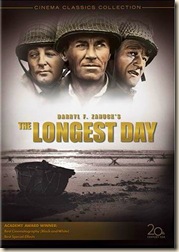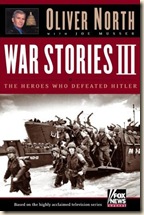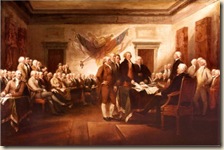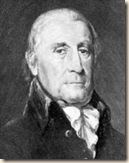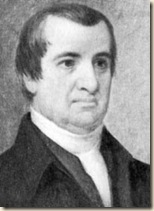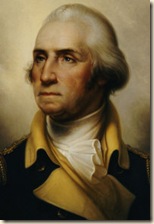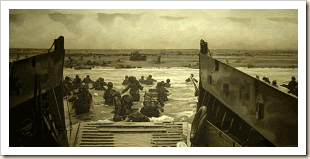
On June 5, 1944, General Dwight D. Eisenhower wrote this brief note, which he then put in his pocket, where it remained for the next two days:
“Our landings in the Cherbourg-Le Havre area have failed to gain a satisfactory foothold and I have withdrawn the troops. My decision to attack at this time and place was based upon the best information available. The troops, the air, and the Navy did all that bravery and devotion to duty could do. If any blame or fault attaches to this attempt it is mine alone."
By God's Providence, this message was never sent. The sending of such a message would have signaled the defeat of the largest one-day invasionary force the world had ever seen, and the prolongation of a war that ultimately claimed the lives of over 400,000 American men and boys. The consequences of a defeat at Normandy are unthinkable. Nevertheless, the possibility of failure was apparently somewhat substantial, as evidenced by the fact that Eisenhower wrote such a note.
An Amazing Story
The events of D-Day, and the days and weeks leading up to it, are truly an amazing story. The Allies had selected Normandy as the location of the invasion in a series of conferences held throughout the year of 1943. The Germans expected the invasion to take place at Pas de Calais; had the Allies chosen that point for the invasion instead of Normandy, the results would have likely been disastrous. In the fall of 1943, as a result of the German high command's belief that Calais would be the location of the Allied landing, Hitler assigned to Gen. Erwin Rommel the task of strengthening the Atlantic Wall along the coast of France.
Operation Fortitude
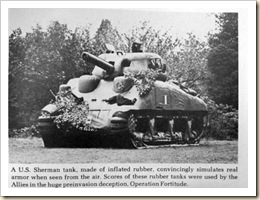
A Fatal Mistake
Due to a dispute between Gen. Erwin Rommel and his superior, Gen. Gerd von Rundstedt, about where to locate the German armored divisions, Hitler placed almost all of the armored and Panzer divisions under his own personal command, and located them just above the Seine River, not far from where the Allies were expected to land at Calais. Rommel's stratagem was to
position the armored divisions as close to the invasion beaches as he could, while von Rundstedt wanted to hold them in reserve away from the beaches until after the invasion was underway, when they could then be used as a tremendous counter-attack. Had Rommel had his way, the results of D-Day could have been very different.
When the invasion started on the morning of the 6th, Hitler was asleep, and his staff refused to wake him. He slept until after noon, and as a result the armored divisions were not deployed until 4 o'clock that afternoon; much to late to turn the tide of the Allied forces moving inland from the beaches.
The Desert Fox
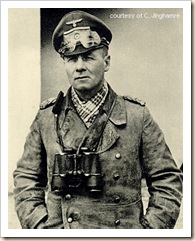
An essential component of the D-Day invasion was the unfavorable weather. Because of that, Gen. Rommel felt secure in taking a few days leave to Berlin to visit his wife for her 50th birthday. He was confident that the Allies wouldn't possibly land an invasionary force under such adverse weather conditions. Had Rommel not been away at the time of the invasion, it's possible that he would have been able to repel the Allies, or at least the invasion long enough for the Panzer divisions to arrive.
The Largest InvasionOne cannot imagine what went through the minds of the Nazi soldiers on Normandy when they saw the Allied fleet approaching. It was the largest one-day invasionary force that the world has ever seen; over 7,000 ships and landing craft, manned by over 195,000 crew; with over 132,000 troops landing on the beaches of Normandy just on that first day. By the 30th, three weeks later, over 850,000 Allied troops had landed at Normandy. The invasion of Normandy was truly an amazing feat of complex planning and preparation.
The Landing
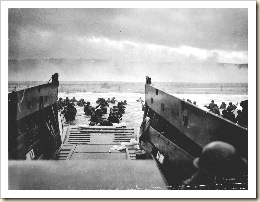
The invasion was divided into 5 different beaches; Juno was to be taken by Canadian forces, Gold and Sword by British forces, and Utah and Omaha by U.S. forces. The landing began at 6:30 AM. The stories of courage and valor on the beaches of Normandy are truly remarkable. One such story is that of Walter D. Ehlers, whose extraordinary story can be read here, as told in the the book: Medal of Honor: Portraits of Valor Beyond the Call of Duty.
The Longest Day
Produced by Darryl Zanuck, The Longest Day (1962) is an outstanding film that brings to life the events of D-Day. Featuring an all star cast including John Wayne, Robert Mitchum, Henry Fonda, Sean Connery and Curt Jurgens, it's truely one of the best WWII films ever made. It really helps you envision what it was like at the beaches of Normandy on "The Longest Day".Here's the trailer for the film:
Oliver North's book War Stories III provides an excellent synopsis of the war in the European theatre. It also comes with a DVD containing an episode from Oliver North's TV show War Stories.
Medal of Honor: Portraits of Valor Beyond the Call of Duty, tells the stories of 138 living or recently deceased men who were awarded the Medal of Honor for courage and valor beyond the call of duty. Each Medal of Honor recipient's story is told in a two-page format with wartime photos as well as recent photos taken for this book.
